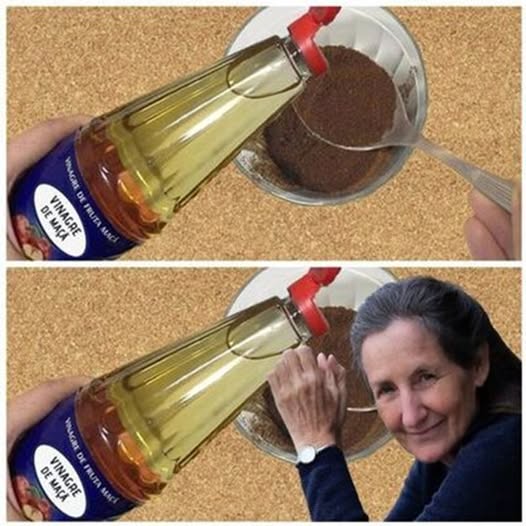Introduction

Blood clots are silent yet deadly health threats, especially for seniors. According to the Centers for Disease Control and Prevention (CDC), nearly 900,000 people in the U.S. are affected by blood clots each year, with seniors being at significantly higher risk due to age-related changes in circulation, reduced physical activity, and underlying health conditions. Left untreated, clots can lead to life-threatening complications such as deep vein thrombosis (DVT), pulmonary embolism, heart attacks, and strokes.
But here’s the good news: nature provides powerful, clot-fighting fruits that can naturally thin the blood, improve circulation, and protect seniors from these silent killers. Packed with antioxidants, fiber, and natural blood-thinning compounds, these fruits not only protect the cardiovascular system but also enhance overall health and vitality.
In this article, you’ll discover 14 fruits that seniors should eat to instantly combat blood clots, plus answers to frequently asked questions, expert insights, and practical tips to add these superfoods into your daily diet.
Why Seniors Are at Higher Risk of Blood Clots
Before diving into the fruits, let’s understand why seniors need extra clot-fighting support:
- Slower circulation due to aging blood vessels
- Higher cholesterol levels that thicken blood
- Medication interactions (such as hormone therapy or blood pressure drugs)
- Decreased mobility leading to stagnant blood flow
- Chronic conditions like diabetes, hypertension, and obesity
Fortunately, the right foods—especially fruits—can naturally regulate blood consistency and prevent clot formation.
The 14 Fruits That DESTROY Blood Clots Instantly
1. Oranges – Vitamin C Powerhouse
Oranges are packed with vitamin C, which strengthens blood vessels and prevents clot formation. The natural flavonoids in oranges also act as antioxidants, improving circulation.
Tip: Drink a glass of freshly squeezed orange juice every morning to boost immunity and heart health.
2. Pineapple – Nature’s Anti-Clot Enzyme
Pineapples contain bromelain, a natural enzyme that reduces platelet aggregation (clumping of blood cells that form clots). Studies have shown bromelain to be effective in breaking down fibrin, a key protein in blood clot formation.
Tip: Eat fresh pineapple slices instead of canned versions, as processing reduces bromelain activity.
3. Blueberries – The Tiny Circulation Boosters
Rich in anthocyanins, blueberries prevent oxidative stress and improve blood flow. Research shows that blueberry consumption reduces arterial stiffness, lowering clot risk.
Tip: Add a handful of blueberries to your morning oatmeal or yogurt.
4. Lemons – Natural Blood Thinners
The high citrate content in lemons helps dissolve blood clots naturally. Lemons also alkalize the body, reducing inflammation and improving heart health.
Tip: Drink warm lemon water daily to support digestion and circulation.
5. Grapes – Flavonoid-Rich Circulation Enhancers
Both red and purple grapes contain resveratrol, a compound proven to prevent clot formation by inhibiting platelet aggregation.
Tip: Choose fresh grapes over grape juice to avoid excess sugar intake.
6. Pomegranates – The Heart Protector
Pomegranates are loaded with polyphenols and antioxidants, which reduce oxidative stress and improve blood flow. They also lower blood pressure, a key factor in preventing clots.
Tip: Drink a small glass of unsweetened pomegranate juice for maximum benefits.
7. Kiwi – Natural Blood Pressure Stabilizer
Kiwi fruits are high in vitamin K and potassium, which regulate blood clotting and pressure. A study in Blood Coagulation & Fibrinolysis found that eating 2 kiwis daily reduced platelet activity.
Tip: Add kiwi slices to salads for a tangy twist.
8. Bananas – Potassium Power
Potassium-rich bananas regulate fluid balance and prevent thickening of blood, lowering clot risk.
Tip: Snack on a banana between meals to keep energy and circulation steady.
9. Cherries – Anti-Inflammatory Gems
Cherries contain anthocyanins and melatonin, which reduce inflammation and protect arterial walls from clot development.
Tip: Drink tart cherry juice before bedtime to improve sleep and circulation.
10. Avocados – Healthy Fat Heroes
Avocados provide omega-3 fatty acids, which thin blood naturally and reduce clotting. They also lower LDL cholesterol, another clot risk factor.
Tip: Spread avocado on whole-grain toast instead of butter.
11. Papaya – Circulation Booster
Papayas are rich in papain, an enzyme that helps break down fibrin and improves circulation.
Tip: Enjoy papaya with lime juice for a refreshing, clot-fighting snack.
12. Strawberries – Sweet Heart Protectors
Strawberries are high in salicylic acid, the natural compound found in aspirin, which prevents clot formation.
Tip: Blend strawberries into a smoothie for a refreshing drink.
13. Apples – Pectin for Cholesterol Control
Apples contain pectin, a soluble fiber that reduces bad cholesterol (LDL), preventing thick blood and clots.
Tip: Eat apples with the skin on to maximize fiber intake.
14. Watermelon – Hydration Hero
Watermelon is rich in citrulline, an amino acid that improves blood vessel function and reduces clot risk. Its high water content also prevents dehydration, which thickens blood.
Tip: Eat fresh watermelon slices or make a hydrating juice in summer.
Frequently Asked Questions (FAQs)
1. Can fruits alone prevent blood clots in seniors?
Fruits are powerful, but they work best when combined with a healthy lifestyle—regular exercise, proper hydration, and avoiding smoking. Seniors with high risk should still follow their doctor’s medical advice.
2. Are there fruits seniors should avoid if on blood-thinning medications?
Yes. Fruits high in vitamin K (like kiwi, spinach, kale) can interfere with blood-thinning drugs such as warfarin. Always consult a doctor before making dietary changes.
3. How often should seniors eat these clot-fighting fruits?
Aim for 2–3 servings of fruit daily, mixing different varieties for maximum benefits.
4. Are fresh fruits better than juices or dried fruits?
Fresh fruits are best since they retain fiber and natural enzymes. Juices may spike blood sugar, while dried fruits may contain added sugar and preservatives.
5. What are early warning signs of a blood clot?
- Swelling in one leg or arm
- Sudden chest pain
- Shortness of breath
- Redness or warmth in a limb
- Unexplained fatigue
If these symptoms occur, seek immediate medical attention.
Practical Tips to Incorporate These Fruits Daily
- Breakfast boost: Add blueberries, bananas, and strawberries to oatmeal.
- Midday snack: Enjoy apple slices with peanut butter.
- Hydration hack: Infuse water with lemon, kiwi, and watermelon.
- Evening treat: Blend pineapple, papaya, and pomegranate into a smoothie.
Conclusion
Blood clots are dangerous, but seniors don’t have to be powerless against them. By adding these 14 fruits—from oranges and pineapples to watermelon and pomegranates—into your daily diet, you can naturally thin your blood, improve circulation, and protect your heart.
Remember, prevention is key. Along with eating clot-busting fruits, maintain a healthy lifestyle, stay active, and consult your doctor for personalized medical advice.
👉 Take action today: Start incorporating at least 3 of these fruits into your meals daily and protect yourself against the silent danger of blood clots. Your heart and health will thank you!


